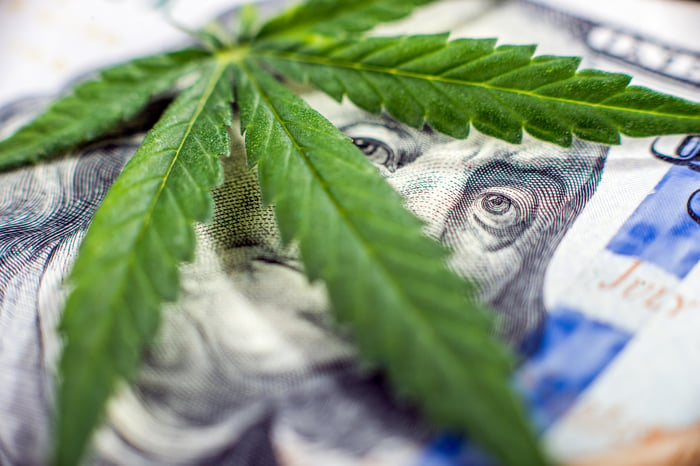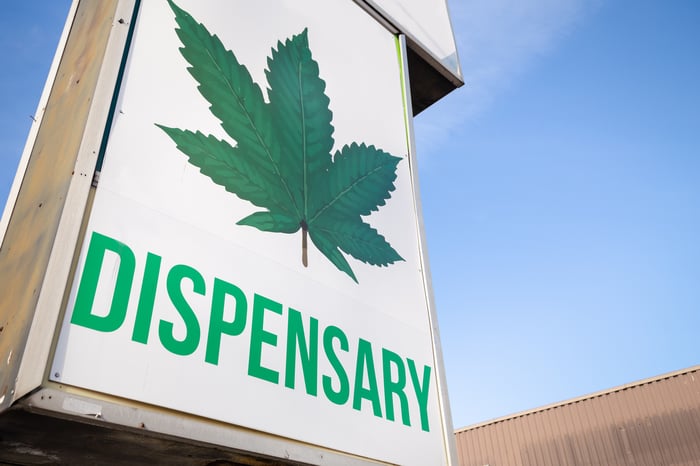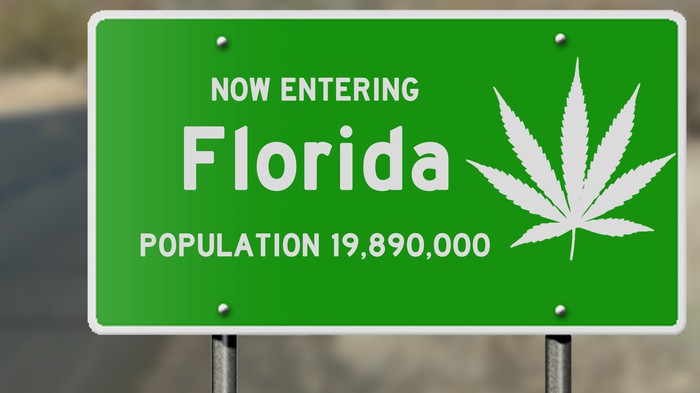When the year began, investors expected the world of marijuana stocks. Canada had just become the first industrialized country in the modern era to legalize adult-use weed in Oct. 2018, and it was believed that Health Canada would green light higher-margin derivative pot products by no later than October 2019. We also saw plenty of U.S. states pushing toward medical or recreational legalization.
Yet here we sit, just weeks from the end of 2019, with the cannabis industry in shambles.

Image source: Getty Images.
Marijuana stock earnings reports have been a dumpster fire in the most recent quarter
To our north, regulatory and procedural issues have worked together to make life difficult for Canadian pot growers. Health Canada has been unable to issue cultivation and sales licenses in a timely manner, leading to exceptionally long wait times for growers before they can plant, process, or sell marijuana from certain grow sites.
At the time same time, differing provincial regulations have led to the slow rollout of physical retail locations in a handful of provinces. As an example, Ontario, with 14.5 million people, has only around two dozen open cannabis dispensaries. With so few channels for legal pot to be sold, it's created an oversupply in the province, while at the same time bolstering sales of black market marijuana.
Pretty much every major Canadian pot stock bombed with their most recent operating results. We've witnessed Aurora Cannabis, HEXO, and The Green Organic Dutchman announce a curtailment of production to reduce expenditures and better align their businesses with current market demand. Even OrganiGram, the only Canadian grower to have previously produced a true quarterly operating profit without the aid of fair-value adjustments and one-time benefits, warned that its sequential quarterly sales would fall by about a third.
And it hasn't been much pretty in the U.S., either. Notoriously high tax rates in select states, as well as a Swiss cheese-like legalization process, have allowed illicit producers to thrive. In California, the typical pot consumer is being asked to absorb already lofty state and local taxes, a 15% excise tax, and a cultivation tax. Oh, and let's not forget that the Golden State's cannabis tax is increasing on Jan. 1, 2020. California has made it almost impossible for pot stocks to succeed, which is leading to equally disappointing operating results for most U.S. cannabis stocks.

Image source: Getty Images.
Take a gander at the best earnings report of the season in the cannabis space
However, one marijuana stock really bucked the trend in a big way in the latest quarter. Although it's not the only pot stock to generate a no-nonsense operating profit -- hat-tip to Innovative Industrial Properties (IIPR -0.82%), Valens GroWorks, and MediPharm Labs for solid quarters – nothing tops what Trulieve Cannabis (TCNNF -6.26%) brought to the table.
Trulieve, a vertically integrated multistate operator, wound up reporting $70.7 million in sales for the third quarter, which represents a 22% sequential quarterly improvement and a cool 150% year-over-year jump. After recognizing $26.7 million in cost of goods sold, Trulieve generated a healthy gross profit of $44 million. That's a gross margin of 62%, and it's higher than each and every brand-name Canadian grower.
Now, here's the fun part. Whereas most Canadian pot stocks have seen recurring expenses go through the roof -- e.g., Canopy Growth's share-based compensation by itself was higher than its net sales in the latest quarter -- Trulieve's fiscal prudence has allowed expensing to stay in check. Total recurring expenses grew to $20.6 million in the third quarter. Thus, if we ignore all of the one-time benefits and costs, including fair-value adjustments, as mandated by International Financial Reporting Standards (IFRS) accounting, Trulieve would have generated a no-nonsense operating profit of $23.4 million. That's pretty incredible on $70.7 million in sales.
Inclusive of fair-value adjustments, the company's net income was considerably higher than this. Despite a negative $22.9 million adjustment on inventory that was sold, the revaluation of biological assets prior to sale led to an $89 million positive fair-value adjustment. All told, Trulieve walked away with $110.1 million in gross profit and $89.5 million in income from operations. Again, there's a clear asterisk by this number given that IFRS accounting adjustments can swing either way in a given quarter. Nevertheless, the $0.55 per share profit is far and away king among pot stocks.

Image source: Getty Images.
What makes Trulieve Cannabis so special?
By now you're probably wondering what it is about Trulieve Cannabis that's allowed it to run circles around its mostly money-losing peers.
To begin with, rather than trying to expand into as many states as possible, like a few other multistate operators, the company has been laser-focused on the medical marijuana-legal Florida market. Earlier this month, Trulieve opened its 39th store in the Sunshine State. By keeping its expenses close to the vest and focusing on a single high-revenue market, Trulieve has been able to effectively build up its brand and keep its operating expenses from skyrocketing.
Another pretty important factor is that, unlike Canadian marijuana stocks and even some U.S. multistate operators, Trulieve Cannabis hasn't been issuing its stock like Monopoly money. Over the past year, the company's outstanding share count rose by a very modest 10% on a weighted-average diluted basis. Instead of selling its stock to generate capital and diluting the daylights out of its shareholders in the process, Trulieve's management team has been relying on operating cash flow from the business, as well as other means, to boost its cash on hand.
One of these "other means," is by engaging in sale-leaseback transactions with Innovative Industrial Properties. In October, for instance, a Trulieve subsidiary sold a Florida property to Innovative Industrial for $17 million with an initial lease term of 10 years. This followed an earlier-year deal between IIP and Trulieve for an industrial facility in Massachusetts for an initial purchase price of $3.5 million and facility improvements of up to $40 million.
Trulieve has avoided a lot of the pitfalls that have crushed its peers, and right now is the most impressive grower and/or retailer by a mile.





